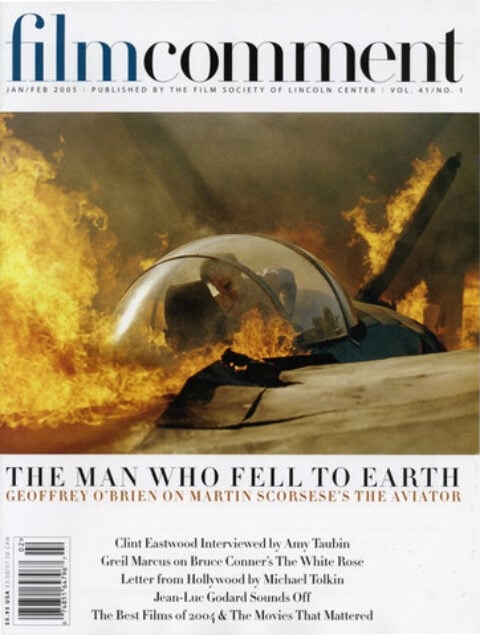
Age has clenched Clint Eastwood’s face tight as a fist, but he has never been more tender, vulnerable, and heartbroken than in Million Dollar Baby. It’s not surprising that the camera still loves Eastwood’s visage, finding unchanging beauty in the skull beneath the skin. His facial bones, if anything, appear more finely chiseled than in his youth. But the muscles that hold the thinned skin have contracted, pulling brow and eyes down and inward, so that the signature squint is deeper and less yielding, even to laughter. Eastwood never had one of those expressive, easy-to-read faces. He made a virtue of his guardedness, subtly adjusting a personal character trait to fit dozens of different fictional characters and stories. As both director and actor, he has applied a single style-stripped-down realism-to an enormous range of genres: westerns, cop thrillers, biopics, screwball comedies, psychodramas, even a three-handkerchief romance. At first, he tinkered with their formulas; then he turned them upside down.
Loss, regret, and the things one does and doesn’t learn from experience are the themes of the late Eastwood films, among which Million Dollar Baby is one of the greatest. Unforgiven may be more magisterial, but Million Dollar Baby is the tougher work of art in the sense that it’s easier to fuel a film with anger and the desire for revenge, as Unforgiven is, than with a grief that can never be assuaged. Million Dollar Baby starts out bittersweet-it could be a Thirties studio picture about a broken-down boxing trainer who gets a second chance when he takes a hungry young fighter under his wing-but it ends up akin to King Lear. And much of the emotional power of the film comes from Eastwood’s performance. In the past, Eastwood the director has treated Eastwood the actor perhaps too much as a functionary. Since a large percentage of the world’s population enjoys seeing him onscreen, it hasn’t been such a bad strategy. But here, for the first time, he gives himself the kind of liberty that he has, so generously, given other actors: to explore the character in the moment as the camera rolls.
Eastwood plays Frankie Dunn, a physical and emotional wreck of a man who has spent a lifetime in the fight game and now owns a run-down gym and occasionally manages a boxer. Frankie’s body barely cooperates anymore, but what has really dragged him down is his estrangement from his daughter (Eastwood leaves it for us to imagine what terrible thing happened between them) and also that one of his fighters was badly injured in the ring. That fighter, Scrap (Morgan Freeman), is now Frankie’s sole employee and his only friend. Scrap encourages Frankie to work with Maggie Fitzgerald (Hilary Swank), who’s trying to rise above her own family horror show and believes that a boxing career could be her way out of grinding poverty. Frankie wants no part of this venture, but Maggie’s persistence, courage, and passion for the fight game prove persuasive.
“Always protect yourself” is the basic boxing lesson Frankie tries to drum into Maggie’s head. But Frankie has a problem figuring out when protectiveness-of oneself and the people one is committed to-closes off the possibility of living fully. More than a film about boxing, Million Dollar Baby is about the relationship between parents and children, specifically between fathers and daughters. Maggie gives Frankie a second chance at parenting, and Maggie knows, just as we in the audience know, that Frankie is the best father any daughter could wish for. The heartbreaking thing is that Frankie, almost assuredly, will never feel that way about himself.
This is the most musical of Eastwood’s films in that so much meaning and feeling is carried by shifts of tempo and tonality. The shifts that happen within the dialogue scenes are extremely delicate-the three leading actors play off one another with the subtlety and spontaneity of jazz musicians. The fight scenes, however, are explosive and brutal. Shot with two cameras, and virtually unchoreographed, they have a rawness that makes them scary to watch, especially since it’s clear that Swank is doing all her own fighting. Swank is terrifically game and courageous, both in and out of the ring. Her eager, bright spirit is a great foil for Eastwood, and together, they create a complicated map of loyalty, trust, and love.








